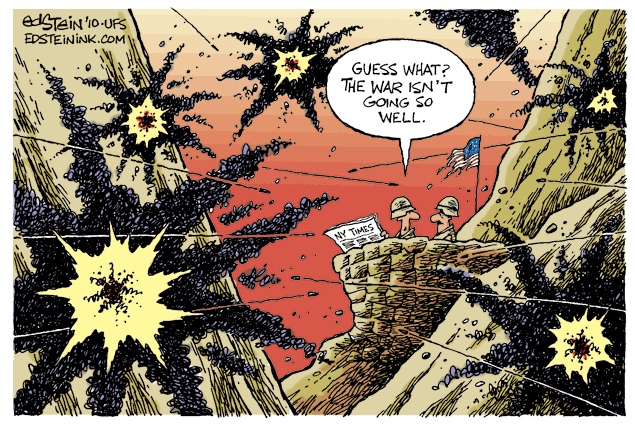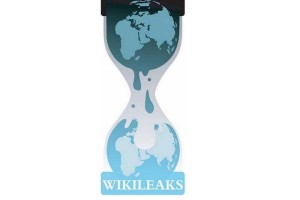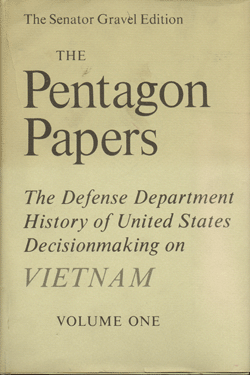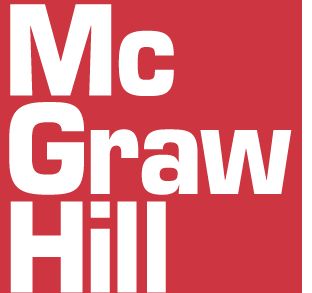 Should some secrets stay secret? And is it treasonous for news operations to report on leaks of war documents when their countries are at war?
Should some secrets stay secret? And is it treasonous for news operations to report on leaks of war documents when their countries are at war?
These questions arise, of course, because of the release of 92,000 documents about the Afghanistan war by WikiLeaks, in coordination with London’s Guardian, the New York Times and Der Spiegel. The ugly affair raises still further questions about what constitutes patriotism, how the Net makes high-quality journalism tougher to practice, and what governments will now do to try to bury their secrets even deeper.
First off, did the papers act properly? At first blush, it appears that at least two of the organizations — the Times and Der Spiegel — were maneuvered into this joint release. The instigator, it seems, was The Guardian, which had learned that WikiLeaks leader Julian Assange intended to release the papers unfiltered on his Swedish-based Web site. The editors at the Guardian suggested the joint release, apparently persuading Assange that he would make a bigger splash that way. This, at least, is the account given to PBS.
 The papers then faced some tough choices: first, do they release the documents, along with their own independent reporting and analysis, and, second, do they share the information with the White House, giving the government a chance to react? On the first count, it seems that the papers really had no choice. After all, the documents would be out on the site no matter what the papers did, and, most likely, they would appear in print (since none of the three competing papers could trust the others to hold back). In short, WikiLeaks held the cards in this high-stakes poker game and it played the papers against one another.
The papers then faced some tough choices: first, do they release the documents, along with their own independent reporting and analysis, and, second, do they share the information with the White House, giving the government a chance to react? On the first count, it seems that the papers really had no choice. After all, the documents would be out on the site no matter what the papers did, and, most likely, they would appear in print (since none of the three competing papers could trust the others to hold back). In short, WikiLeaks held the cards in this high-stakes poker game and it played the papers against one another.
Then the question was, what should the editors do with the information? The New York Times contacted the White House and got its reaction – its take that there was nothing really new in the documents. The White House also did not ask that the Times hold back on publishing the papers (probably realizing the move would be futile). Instead, it got a chance to put its spin on the news, likely hoping to quash the whole matter by offering the “nothing new” take. Certainly, the troops wouldn’t be surprised (see Ed Stein’s cartoon above).
Bill Keller, the executive editor of the Times, laid out the issue nicely in a sidenote to the stories. He noted that the paper had a month to report out the story and that it sought to eliminate any references that could endanger the lives of Allied forces or Afghan supporters. He also suggested that the WikiLeaks folks had the mainstream media over a barrel, arguing “To say that it is an independent organization is a monumental understatement. The decision to post this secret military archive on a Web site accessible to the public was WikiLeaks’, not ours. WikiLeaks was going to post the material even if The Times decided to ignore it.”
Since then, of course, split opinion has emerged on just how problematic the release has been. Former CIA Director Michael Hayden told the folks at Politico that “We’re going to get people killed because of this.” And Rep. Jane Harman, a California Democrat who chairs an intelligence subcommittee, said the documents give the Taliban a hunting list: “There are names of State Department officials, U.S. military officials, Afghans and the cities in which they live in the materials.” By posting them online, she said, “we’ve just served up a target list and an enemies list to the Taliban. … Real people die when sources and methods are revealed.”
For his part, WikiLeaks’ founder Assange said on MSNBC that about 15,000 reports were withheld because they could have revealed the identities of Afghans who have aided U.S. forces and exposed them to “the risk of retributive action” from warlords or the Taliban. For a better sense of who Assange is and what drives him, check out an interview he gave to the folks at TED, the conference organization on the West Coast.
 Seems to me there’s no doubt that the leak of the papers in the first place was treasonous. If proved to be the source, Pfc. Bradley Manning will likely spend the rest of his life in jail. The Army intelligence analyst, also suspected of leaking a video a few months ago of a couple Reuters photographers being killed in Baghdad, will be lucky – in other times, he’d be shot. Now, one would guess, the Obama Administration won’t risk making Manning, an impossibly baby-faced twenty-something in his AP photo, into a martyr. Some of Manning’s friends, too, may be implicated, and one wonders whether they had a duty to inform on him before his alleged leaks.
Seems to me there’s no doubt that the leak of the papers in the first place was treasonous. If proved to be the source, Pfc. Bradley Manning will likely spend the rest of his life in jail. The Army intelligence analyst, also suspected of leaking a video a few months ago of a couple Reuters photographers being killed in Baghdad, will be lucky – in other times, he’d be shot. Now, one would guess, the Obama Administration won’t risk making Manning, an impossibly baby-faced twenty-something in his AP photo, into a martyr. Some of Manning’s friends, too, may be implicated, and one wonders whether they had a duty to inform on him before his alleged leaks.
As for WikiLeaks, the legal situation will be tricky but it seems the U.S. can do little against it. Even if Swedish authorities try to muzzle the site, some there, such as Sweden’s Pirate Party, are already offering help. Of course, Assange might never again be able to travel to the U.S. or perhaps to his Australian homeland, since he could be picked up for various violations. Australia is part of the coalition fighting in Afghanistan. Indeed, one has to wonder just where he can go in the West without being pursued.
Some folks are saluting the leaks, praising the media outlets for publicizing the documents, and ignoring or rebutting questions of treason. “I’m more concerned about the troop threat caused by our nation’s involvement in a war that lacks the backing of the Afghan people or fiscal accountability for the $330 billion we have pumped into the longest war in U.S. history,” argues a colleague at Nebraska, Assoc. Prof. Bernard McCoy. “What do we have to show for this? With corrupt Afghan political leaders and insurgents who, according to our own intelligence reports, are as strong as ever, our troops remain at great risk.”
 And comparisons to the Pentagon Papers abound. That secret history of the Vietnam war, detailing a wealth of information not revealed to the public and quite embarrassing to the politicians of the day, was published first by the New York Times and then the Washington Post, both in mid-1971. The papers were an official Defense Department study of U.S. activities in Vietnam from 1945-67. A former colleague at BUSINESS WEEK, Mark Ivey, says of the current leak, “Viet Nam, relived.”
And comparisons to the Pentagon Papers abound. That secret history of the Vietnam war, detailing a wealth of information not revealed to the public and quite embarrassing to the politicians of the day, was published first by the New York Times and then the Washington Post, both in mid-1971. The papers were an official Defense Department study of U.S. activities in Vietnam from 1945-67. A former colleague at BUSINESS WEEK, Mark Ivey, says of the current leak, “Viet Nam, relived.”
But the new documents, including raw intelligence memos, were nowhere as well-researched or vetted as the Pentagon Papers were. The Afghan War documents may be rife with errors and could prove useful in the end only to vengeful Taliban. Joshua Foust, a contributor to Current Intelligence, argues, “If I were a Taliban operative with access to a computer — and lots of them have access to computers — I’d start searching the WikiLeaks data for incident reports near my area of operation to see if I recognized anyone. And then I’d kill whomever I could identify. Those deaths would be directly attributable to WikiLeaks.”
For my part, it seems clear that the leaks could not be stopped once insiders in the military or elsewhere in the intelligence establishment made up their minds to release the papers. If it hadn’t been for WikiLeaks, someone else in the anything-goes Net universe would likely have found a way to help them surface. At that point, the news organizations acted well in doing what savvy reporters do – they put the documents into context and fleshed them out.
Yes, the newspapers were played by Assange. But they gave the public a far richer and more useful account than he would have by releasing the documents alone. In the case of the New York Times at least, the U.S. government also had a chance to frame the discussion and attempt to minimize the damage.
Will anything change now? It seems some Afghans will be in danger. Pakistan’s intelligence service is likely embarrassed and angry. And the U.S. intelligence agencies will now seek stronger means to keep secrets under lock and key. But, unlike the Pentagon Papers, revelations seem few and there’s little in the papers even to strengthen the case of the antiwar folks.
President Obama’s war in Afghanistan has been messy from the start. Too few forces to begin with. A publicly revealed deadline for drawdown. A military leadership that was anything but politic. Unless his plans for military victory start paying off soon – with real gains against the Taliban and Al Qaeda — the WikiLeaks affair will go down as another troubling turn — probably a small one — in a painful, prolonged and maybe doomed battle against Islamist terrorism. This ethical contretemps pales before that ugly reality.

